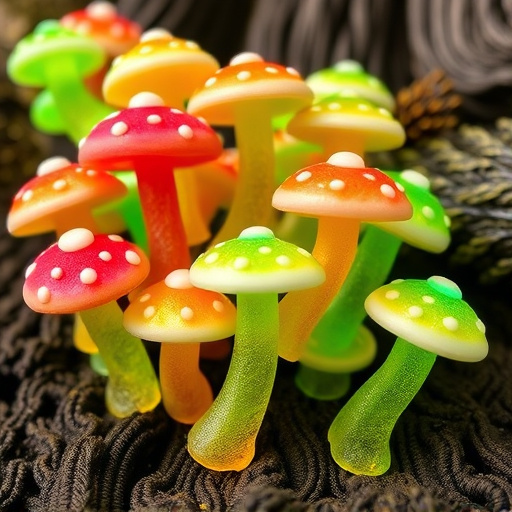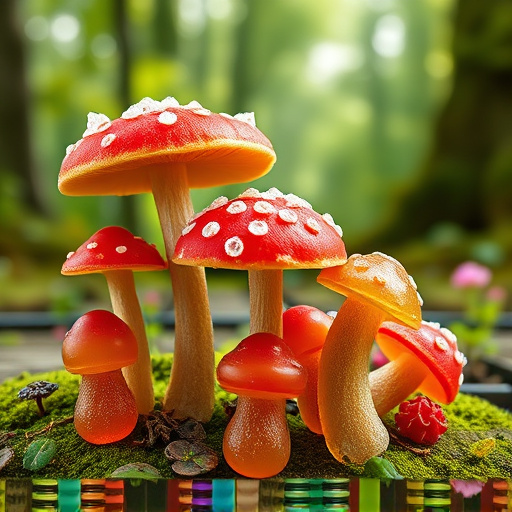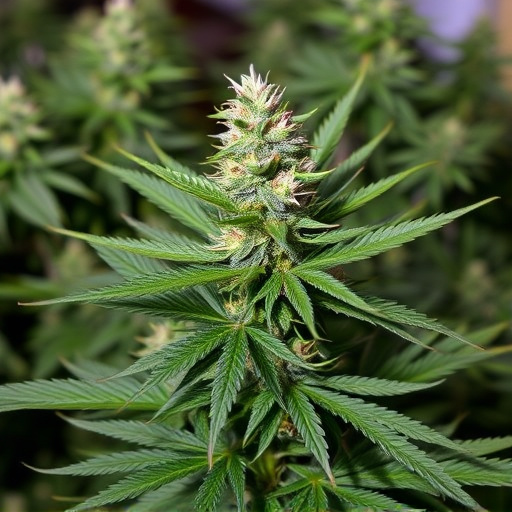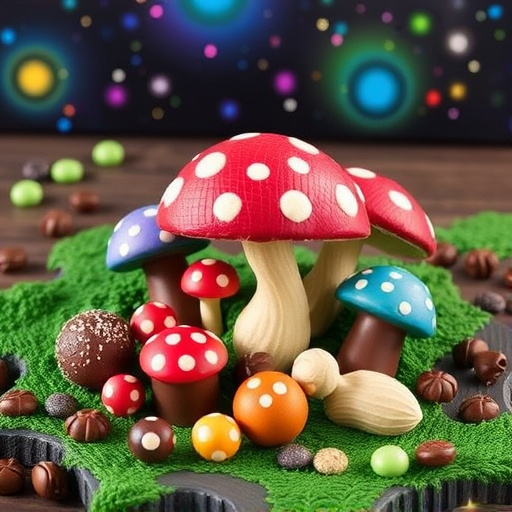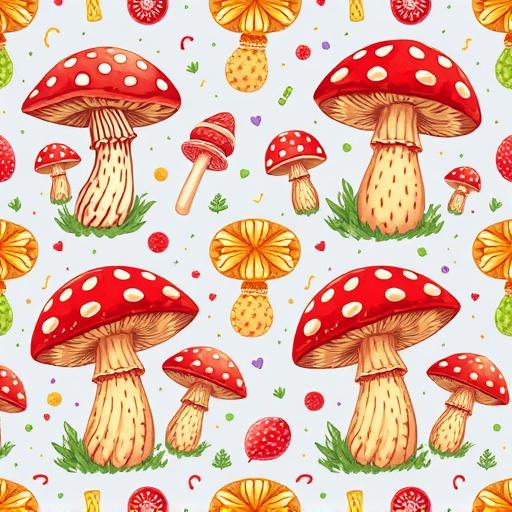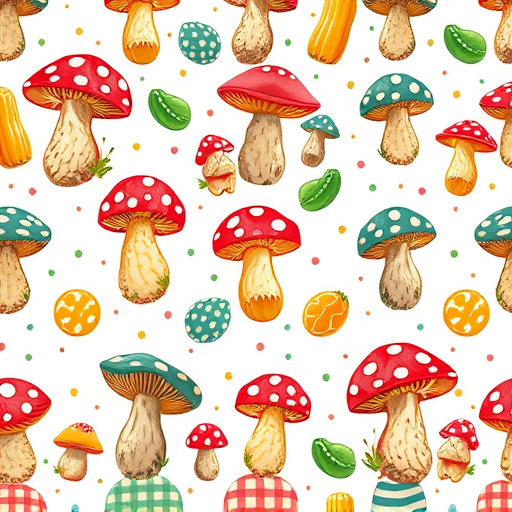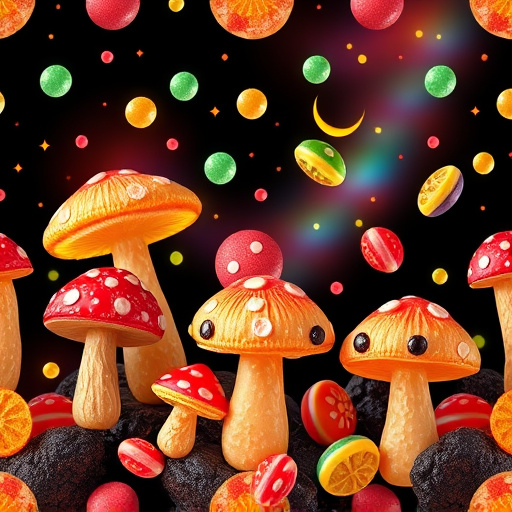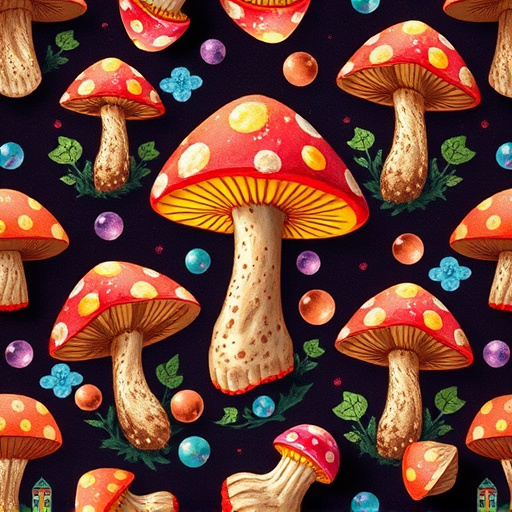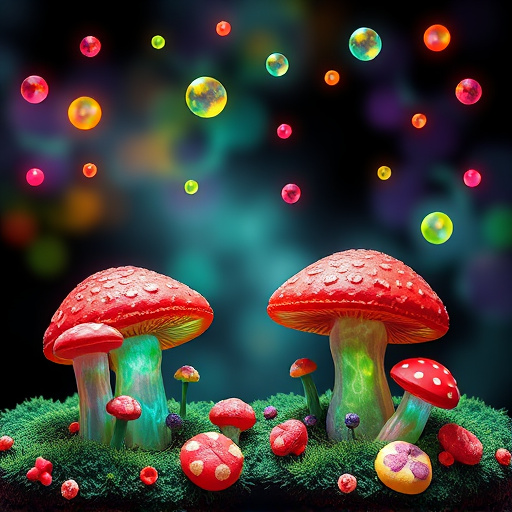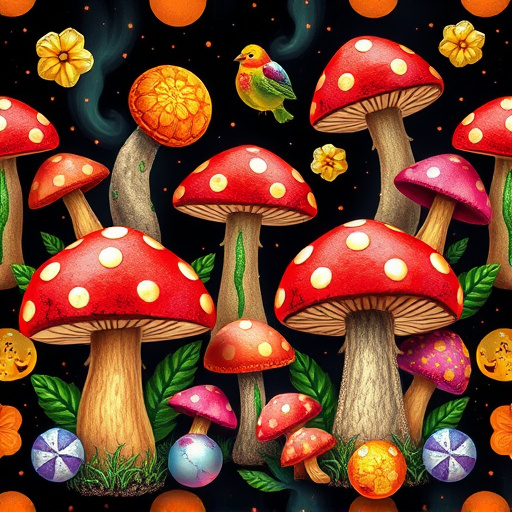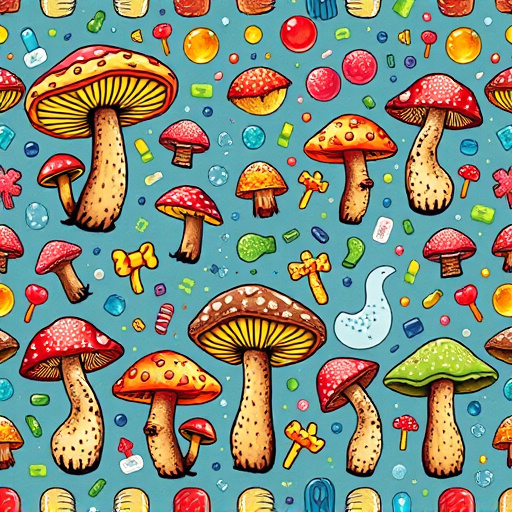The long-term effects of magic mushroom gummies, edibles containing psilocybin and psilocin, show potential therapeutic benefits like enhanced creativity and improved mood. However, consistent consumption may lead to tolerance and dependencies. Early research suggests they can treat depression, anxiety, and addiction but more studies are needed. Dosage, frequency, individual differences, and environment significantly influence outcomes. Responsible usage and safe consumption are crucial while navigating the range of potential long-term effects of these gummies.
- Understanding Magic Mushroom Gummies and Their Composition
- – What are magic mushroom gummies?
- – Key active compounds in psilocybin mushrooms
Understanding Magic Mushroom Gummies and Their Composition
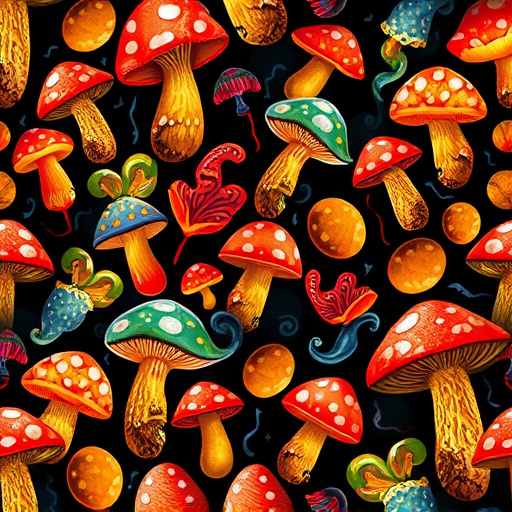
Magic mushroom gummies are a modern iteration of traditional psilocybin mushrooms, designed to deliver a potent dose of their mind-altering compounds in a sweet, consumable form. These edibles contain psilocybin and psilocin, the primary active compounds found in certain species of mushrooms known for their psychedelic properties. The composition of magic mushroom gummies often includes these natural compounds combined with other ingredients like sugar, gelatin, or pectin to create a gummy texture. Unlike other synthetic psychedelics, magic mushroom gummies harness nature’s chemistry, offering a unique experience that has gained significant interest from both recreational users and researchers exploring the long-term effects of psilocybin.
The long-term effects of consuming magic mushroom gummies are a subject of ongoing study and debate. Some proponents suggest that regular use can lead to enhanced creativity, improved mental clarity, and increased emotional resilience. Early research indicates that psilocybin may have therapeutic potential in treating conditions like depression, anxiety, and addiction. However, like any substance, consistent consumption could also result in tolerance development and potential dependencies. Understanding the long-term effects requires further scientific exploration, as current insights are largely anecdotal, emphasizing the need for comprehensive studies to unravel the full spectrum of magic mushroom gummies’ impact on users over extended periods.
– What are magic mushroom gummies?
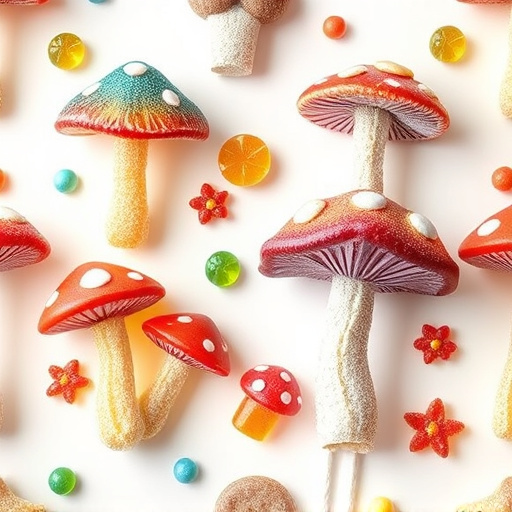
Magic mushroom gummies are edible candies infused with psilocybin, a psychedelic compound naturally found in certain types of mushrooms. These gummies are designed to provide a recreational and potential therapeutic experience similar to that of traditional magic mushrooms, but in a more accessible and discreet form. The psilocybin in these gummies is derived from the extraction process, ensuring a consistent dose for each serving.
The long-term effects of consuming magic mushroom gummies can vary widely depending on several factors such as dosage, frequency of use, individual tolerance, and personal expectations. Some users report enhanced creativity, improved mood, and increased emotional connection after their trip. However, like any psychedelic substance, it’s crucial to be aware of potential risks, including anxiety, paranoia, and temporary disorientation. Responsible usage, setting a safe environment, and having a positive mindset are essential considerations for navigating the long-term effects of magic mushroom gummies.
– Key active compounds in psilocybin mushrooms
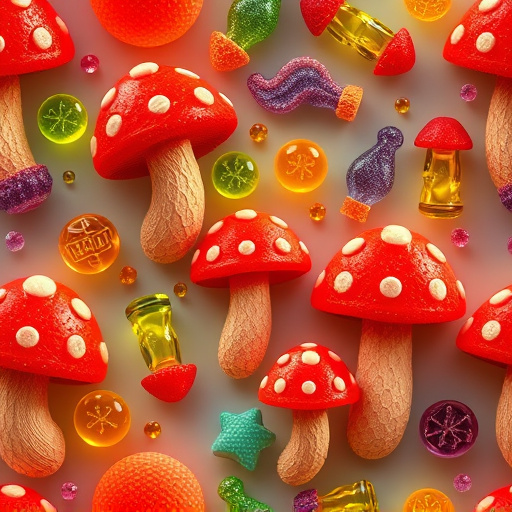
The long-term effects of magic mushroom gummies, while still a subject of ongoing research, offer promising insights into their potential therapeutic benefits. These gummies, composed of key active compounds like psilocybin and psilocin found in specific varieties of mushrooms, have shown promise in treating various mental health conditions. As with any psychedelic substance, individual experiences vary, but many users report profound and lasting positive changes in outlook, mood, and overall well-being. Further study is needed to fully understand the extent of these effects, but the current evidence suggests that magic mushroom gummies could be a valuable tool in holistic wellness regimens.


